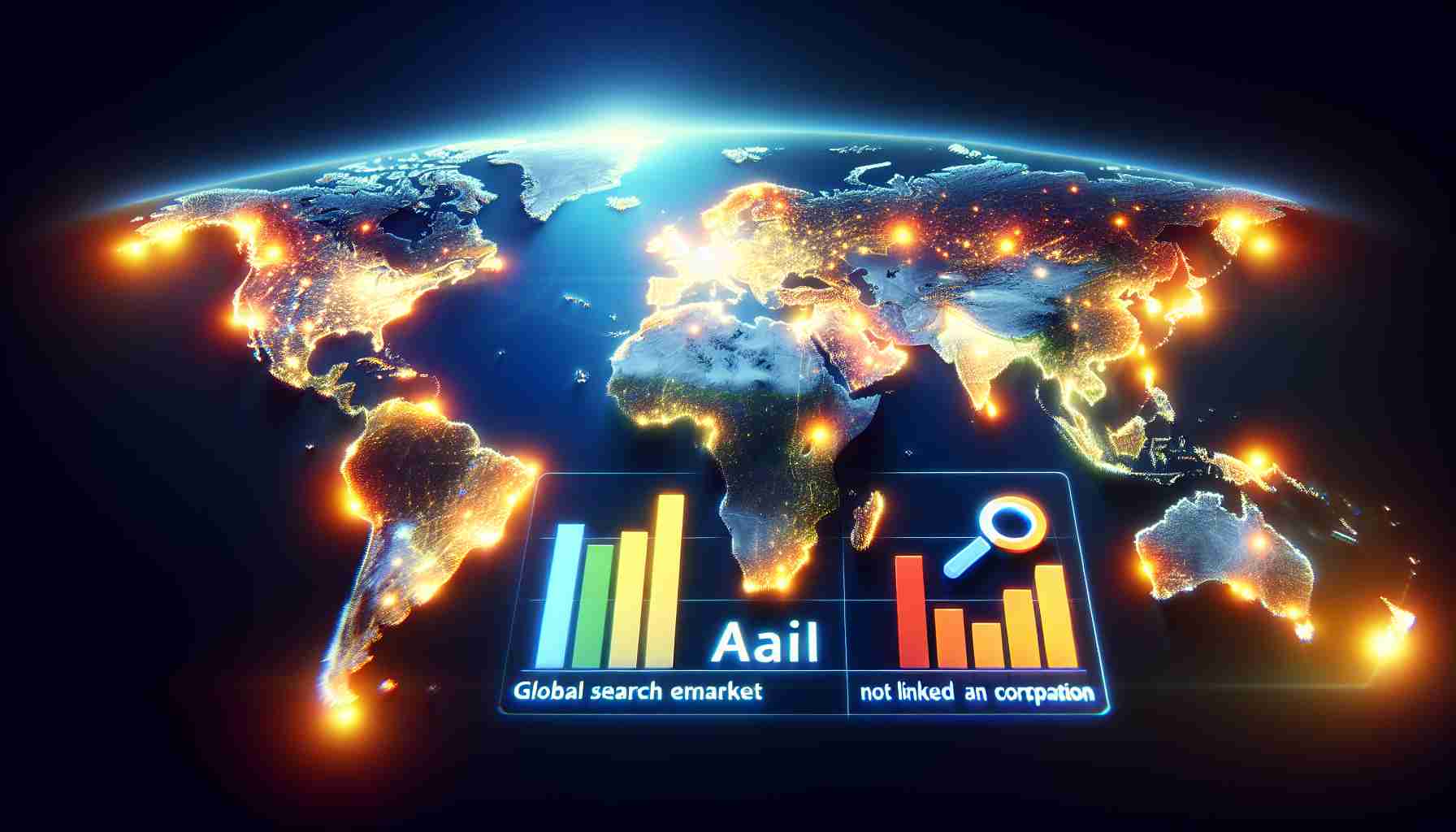Microsoft’s Bing AI, also known as Bing Chat and Copilot, has experienced only a marginal increase in its share of the global web search market since integrating OpenAI’s GPT-4 nearly a year ago, according to industry data. While Bing has attracted some new users with its conversational assistant, the figures indicate that Google remains the dominant player in internet search.
In February 2023, Microsoft introduced its OpenAI-powered Bing chatbot when it held a 2.81% share of the global search market across all platforms. As of December, Bing’s market share had inched up to just 3.37%, according to StatCounter. In comparison, Google maintained a stronghold on the market, starting the year at 93.37% but slipping to 91.62% by December.
On desktop, Bing made slight gains, increasing from 8.18% to 10.53%, while Google saw a decrease from 85.64% to 81.71%. However, on mobile platforms, Bing struggled to capture even 1% of the market throughout the year, with Google holding over 95% of the global share.
One contributing factor to Bing’s modest growth is Microsoft’s initial limitation of the chatbot to its Edge browser. By opening it up to other browsers like Chrome and Safari, Microsoft aimed to expand its user base. Currently, Edge holds under 5% of the global search market across all platforms and around 12% on desktop. Bing’s assistant is also accessible via Android and iOS apps.
While Bing AI, now known as Copilot, offers natural language responses, page summaries, and machine-generated content, it faced criticism for being released before a rival conversational search assistant from Google. In response, Google developed its own AI-powered search tool called Bard.
OpenAI’s GPT-4-powered ChatGPT, which underpins Bing AI, became a sensation in 2023, partly fueled by Microsoft’s $10 billion investment. However, despite the hype surrounding AI capabilities, Microsoft’s share of the global search market has seen minimal growth. Competing against Google, which invests heavily to secure its position as the default search engine on many devices, poses a significant challenge.
Nevertheless, recent concerns over the declining search quality of Google, influenced by the proliferation of SEO farms and affiliate link sites, could provide an opportunity for competitors. Startups like Perplexity AI, supported by notable investors such as Nvidia and Jeff Bezos, aim to differentiate themselves by offering concise responses to user queries extracted from relevant websites.
In conclusion, while Microsoft’s Bing AI has shown some progress, it still faces an uphill battle against the search giant Google. The evolving landscape of generative AI and the potential for competitors to leverage weaknesses in established platforms may offer opportunities for market disruption and the emergence of new players.
FAQ:
1. What is Bing AI?
Bing AI, also known as Bing Chat and Copilot, is Microsoft’s conversational assistant powered by OpenAI’s GPT-4. It provides natural language responses, page summaries, and machine-generated content.
2. How has Bing AI’s market share changed since integrating GPT-4?
According to industry data, Bing’s market share has only slightly increased since integrating GPT-4 nearly a year ago. In February 2023, Bing had a 2.81% share, which grew to 3.37% by December. However, Google remains the dominant player in the internet search market.
3. What are Bing’s market shares on desktop and mobile platforms?
On desktop, Bing made slight gains, increasing from 8.18% to 10.53%, while Google saw a decrease from 85.64% to 81.71%. However, on mobile platforms, Bing struggled to capture even 1% of the market, with Google holding over 95% of the global share.
4. Why has Bing’s growth been modest?
One contributing factor to Bing’s modest growth is Microsoft’s initial limitation of the chatbot to its Edge browser. However, Microsoft has since expanded access to other browsers and mobile platforms. The dominance of Google, which invests heavily to secure its position as the default search engine on many devices, poses a significant challenge.
5. Has Bing AI faced criticism?
Yes, Bing AI faced criticism for being released before a rival conversational search assistant from Google. In response, Google developed its own AI-powered search tool called Bard.
6. Are there potential opportunities for competitors in the search market?
Recent concerns over the declining search quality of Google, influenced by the proliferation of SEO farms and affiliate link sites, could provide an opportunity for competitors. Startups like Perplexity AI aim to differentiate themselves by offering concise responses to user queries extracted from relevant websites.
Definitions:
– GPT-4: GPT-4 refers to the fourth iteration of OpenAI’s Generative Pre-trained Transformer, an artificial intelligence model that powers Bing AI.
– SEO farms: SEO farms are websites or platforms that use black hat SEO techniques to manipulate search engine rankings and generate high volumes of traffic.
– Affiliate link sites: Affiliate link sites are websites that earn commissions by promoting products or services through affiliate links.
Suggested related link:
Bing homepage (Link to the main domain of Bing)
The source of the article is from the blog revistatenerife.com

